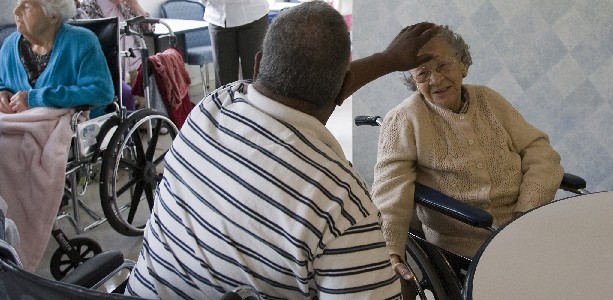.
we spent some time looking at how Jesus took care of suffering. Today I’d like to dedicate my thoughts to the work of the deacon, but I also think that it applies in many ways to anyone involved in pastoral work.
The only scriptural examples of deacons can be found in the Book of Acts. We learn in chapter six that the apostles need assistants to help with the Greek-speaking Jewish widows (presumably the most marginalised group at the time). We then hear of the first deacons, among them Stephen and Philip. But we never hear about how they served the marginalised. The next thing we read is how Stephen is “working great wonders and signs among the people” (Acts 6:8). Was he performing miracles? Was he getting a lot of converts? Whatever it was, it led to his death by stoning. But before he is killed he gives us one of the most powerful witnesses of the whole book of Acts (See Acts 7). Stephen may have been a great listener who was present and authentic to the Greek-speaking Jewish widows, but he was also a great teacher and preacher.
In Acts, chapter eight we learn about another deacon, Philip, who has gone to Samaria to proclaim the Messiah. Was he no longer serving the widows? Not clear, but he was preaching and he was a great preacher, because “the apostles at Jerusalem heard that Samaria had accepted the word of God”( Acts 8:14). Then Philip, guided by an angel of the Lord, meets an Ethiopian eunuch (who may have been excluded from the Jewish community, perhaps also marginalised), who longed to be converted. Philip hears his 'voice of illness,' his 'where is God?' and after instructing him, baptises him.
So we have two examples of deacons who were truly sacraments of Christ. They were authentic and present to those they ministered to, but they were also teachers and preachers. Perhaps what allowed them to be good teachers and preachers is the very fact that they were close and open to Christ (so much so that Stephen saw the Glory of God and Jesus standing at the right hand of God in Acts 7:56, and an angel of the Lord would guide Philip in Acts 8:26). This is what makes them truly the best example for all deacons.
I had never thought of any of this before. I presumed that deacons preached the word of God. I presumed that the main work a deacon does is to bring Christ to those who are not coming to Church. Now I understand that it is much more – but it is also much less. As a deacon I will have to first be present to those I am with, be attuned to their woundedness and brokenness and be authentic to them. I can’t have any preset notions or prejudices. I can’t have any presumptions that I can make things better. But precisely in that space, I can best bring them comfort and hope because Christ is our comfort and hope. This notion is truly liberating and humbling. Not to diminish the order of deacons, but this is a call for everyone. And you don't have to be involved in pastoral work to answer this call. We all are called to bring people comfort and hope everywhere: at work, at home, in our schools and at the office Christmas or New Year's party.
Read all the posts of The voice of illness: part one, part two, part three, part four, part five, part six, part 7.
-
Credit: CNS photo
 So far we’ve defined suffering in the context of people’s cry for God and we’ve looked at the tension between being and doing when involved in pastoral work. Yesterday we spent some time looking at how Jesus took care of suffering. Today I’d like to dedicate my thoughts to the work of the deacon, but I also think that it applies in many ways to anyone involved in pastoral work.
So far we’ve defined suffering in the context of people’s cry for God and we’ve looked at the tension between being and doing when involved in pastoral work. Yesterday we spent some time looking at how Jesus took care of suffering. Today I’d like to dedicate my thoughts to the work of the deacon, but I also think that it applies in many ways to anyone involved in pastoral work.